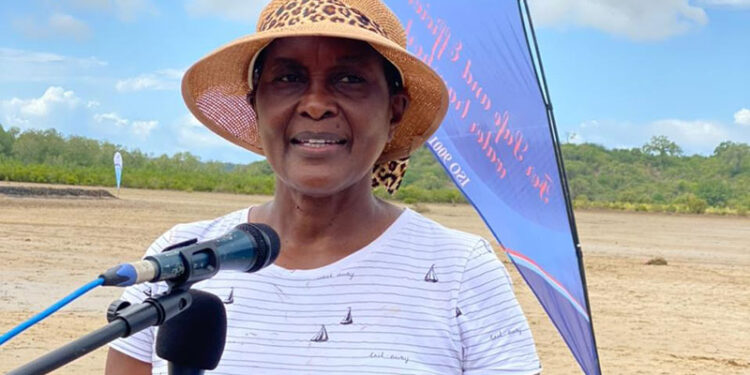Kenyan government through Mining, Blue Economy, and Maritime Affairs CS Salim Mvurya led launched Ambassador Nancy Karigithu’s bid for the secretary general position at International Maritime Organisation (IMO) in UK London during the weekend. The high-powered delegation that attended the event included representatives of the African Union (AU).
“I wish to assure you that Kenya is presenting a good candidate with the right skills and ability to steer IMO and make it a United Nations Organisation that we are all proud of,” Mvurya said during the launch.
“It, therefore, provides an opportunity for the IMO and Kenya to reflect on our journey in the last 50 years and to look to the future with hope and determination.”
In an earlier endorsement, President William Ruto had said that Karigithu was a world-renowned maritime expert who has been an active leader and a consequential voice in promoting the objectives of the IMO dedicated to safety, security, and environmental protection in the maritime industry.
Her bid for the IMO jobs comes at a time the maritime industry is at the point of a transition to cleaner fuels. Asked how she will do this in a manner fair to all IMO member states by the Maritime Executive in an interview published on 6th February 2023, this is what she had to say.
“Incentivizing the availability and scalability of low and zero-carbon marine fuels and technologies is paramount. This should be coupled with the ability of all Member States to take part in the transition. In parallel, we must not lose sight of safety, and therefore there is a need to examine all measures required to address emerging safety concerns related to the use of alternative fuels.
Human capital in this subject, supported by capacity building and training is of utmost importance. The maritime workforce ought to be well-equipped as we chart the way forward toward decarbonizing international shipping.
The availability of viability gap funding is crucial. Developed regions hosting international financial institutions and corporations aiming to invest in the shipping sector should endeavor to support region-specific pilot trials. This will also support bankable pilot projects. In so doing, uptake will be accelerated, and first movers can be incentivized.
I further propose promoting pilot trials of alternate fuels and studies looking at the safety of these fuels as soon as possible. This could be done by forging partnerships between fuel producers, shipping companies, class societies, and engine manufacturers. The Global MTCC Network (GMN) spearheaded by the IMO could be a significant player in supporting this transition.
As Secretary General, defining and achieving a just, fair, and equitable energy transition will be my utmost priority. IMO, the United Nations global agency responsible for the regulation of shipping, has the best means of reaching the right stakeholders. I have the willingness and drive to make this happen.”
This article was published by an editorial consultant and can be reached via githua.kihara@gmail.com





